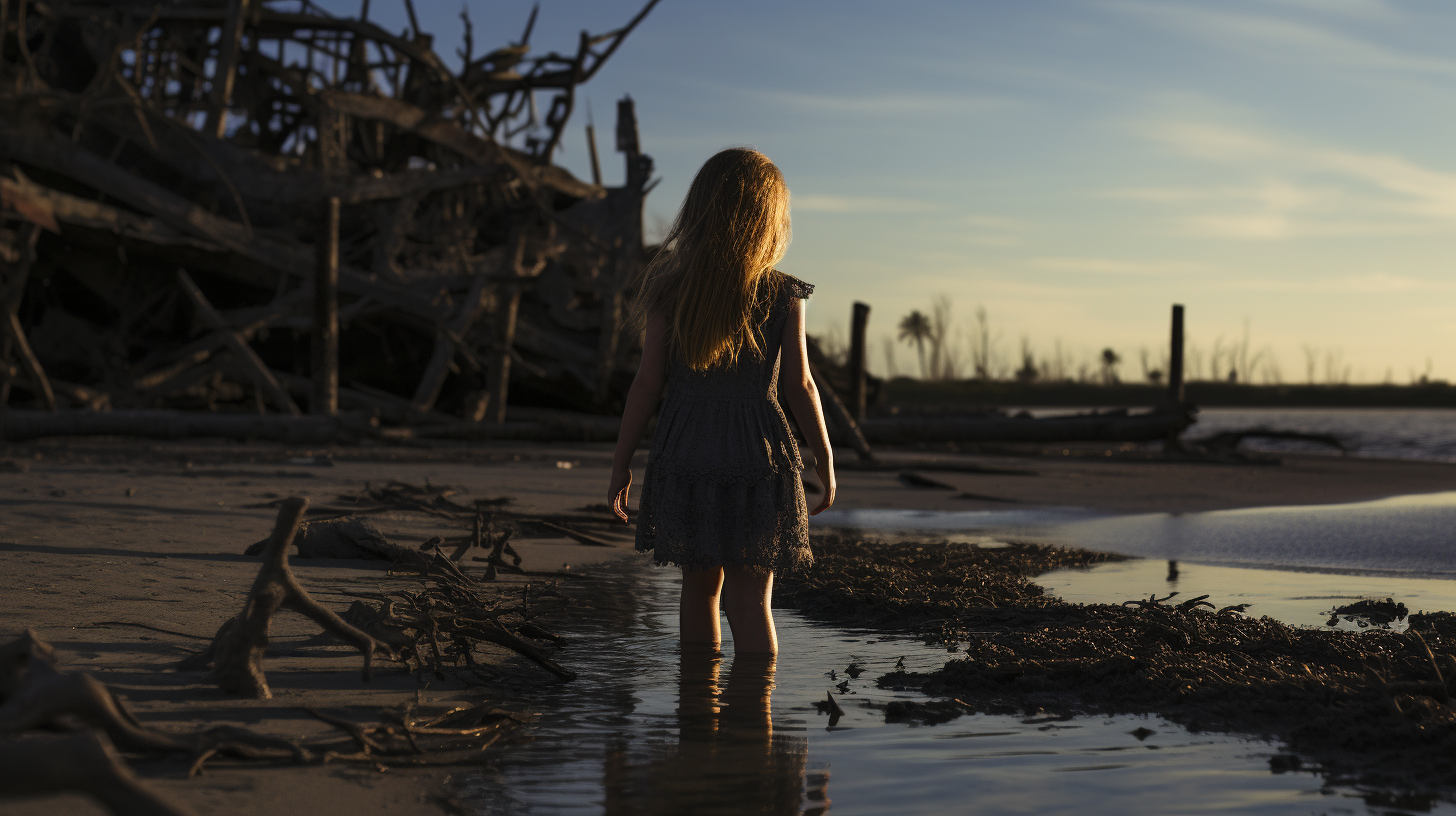In a grim tableau of debris where children once built their dreams out of sand and sea, we find ourselves wondering, will our beaches become but a memory, just another chapter in the anthology of human disobedience to nature’s laws?
It seems like just yesterday when the ocean’s caress on our feet was a soothing symphony, an idyllic scene etched into the collective consciousness of coastal dwellers and vacationers alike. Now, the relentless swell tugs not only at our shorelines but at the strings of our melancholic hearts, as we stand before an uncertain future.
To grasp the magnitude of our predicament, one must realize that beaches are not merely sandy fringes, but vital components of the Earth’s ecosystem. Their disappearance signals far more than the loss of tourist havens, it heralds the collapse of complex natural defenses. The barrier dune systems and the biodiversity that thrives in these habitats are vanishing at a rate that outpaces even the most pessimistic of scientific predictions.
Imagine our world, where once bustling marinas are now ghostly silent, their boats moored in a testament to past pleasures. The coastal businesses, the lifeguard stands, the ice-cream vendors, and countless other fragments of beach culture have been swallowed by the rising tides of change. In this dystopian present, we witness the eroding livelihoods parallel to our very coasts.
Indeed, the prophetic voices of yesteryears were not heeded in time. What if they were not cries of the misguided but summonses to alter our disastrous course? Now, we walk through the eerily calm reality where the voices of playing children are as absent as the wisdom we lacked.
The science behind this catastrophe is as solid as the concrete jungles we erected at nature’s expense. Our carbon footprints have scorched the Earth. The rising sea levels, fueled by the melting of polar ice, are claiming beachfronts at an alarming speed. The increased frequency of storm surges has turned unpredictable destruction into common expectation.
Yet, among the decay and the despair, there lies a perverse fascination. The resiliency of human memory clings to the hope of seashores restored. Our yearning for the past is perhaps the cruelest aspect of this unfolding tragedy – a longing for a perception of paradise now defiled by our own hands.
With each crashing wave, we’re reminded that the relentless march of climate change stops for no one. And as the sands of time slip inevitably through our fingers, we must ask ourselves the haunting question: Will our beaches be history? And if so, what does this mean for the future of the blue planet we call home?
In a stark yet strangely beautiful testament to our hubris, the skeletal remains of boardwalks reach out into the encroaching waters like the arms of a drowning civilization desperate for salvation. Yet, the silent sea answers back with nothing but the sound of its own churning.
So, as the sandcastles are washed away, along with the innocence of a world that could have been, let our reflections on the coastlines of our past guide us in seeking solace not in the sands, but in the truth of our situation. Only through this lens can we begin to navigate the treacherous waters that lie ahead.
